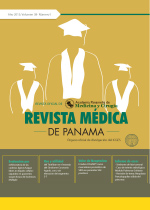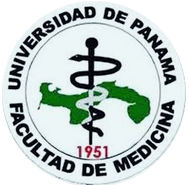Experiencia Con Erlotinib Y Gefitinib En Pacientes Con Cáncer De Pulmón Avanzado Con Mutación Positiva En El Receptor De Factor De Crecimiento Epidérmico.
Autores/as
DOI:
https://doi.org/10.37980/im.journal.rmdp.2018481Resumen
[Experience with Erlotinib and Gefitinib in Patients with Advanced Lung Cancer With Positive Mutation In The Receptor of Epidermal Growth Factor]
Introducción: Los inhibidores de tirosina cinasa (TKI) son el tratamiento estándar en Cáncer de pulmón avanzado con mutaciones del receptor de factor de crecimiento epidérmico (EGFR) y son superiores a quimioterapia en términos de supervivencia libre de progresión (PFS), tasas de respuesta y calidad de vida, sin embargo, hay pocos estudios comparando los diferentes TKI disponibles. Objetivos: como objetivo primario se comparó la PFS en pacientes tratados con TKI de primera generación en primera línea y el secundario fue analizar los factores asociados a Supervivencia Global (OS) en esta población. Metodología: Revisión retrospectiva de pacientes con Cáncer de pulmón avanzado con mutación positiva en EGFR tratados con Gefitinib o Erlotinib de 2011 a 2015, utilizando para el análisis de la PFS y OS el método de Kaplan-Meier Resultados: 80 pacientes con mutación en EGFR recibieron tratamiento para enfermedad metastásica, 34 sólo con TKI (42.5%), 45 con TKI y quimioterapia (56.3%) y 1 paciente sólo con Quimioterapia. De los pacientes que recibieron TKI, 30 recibieron Erlotinib con una PFS de 10.1 meses y 24 Gefitinib con una PFS de 7.8 meses sin diferencia significativa entre ambos (p=0.125). En cuanto a OS los factores asociados fueron el estado funcional y exposición a TKI y QT (p=0.035, p=0.009).Conclusión: No hay diferencia significativa en PFS entre Erlotinib y Gefitinib en primera línea. Es importante exponer a aquellos pacientes con mutación en EGFR tanto a TKI como a quimioterapia para alcanzar una OS aceptable. Abstract
Tyrosine kinase inhibitors (TKI) are the standard treatment in advanced lung cancer with epidermal growth factor receptor (EGFR) mutations and are superior to chemotherapy in terms of progression-free survival (PFS), response rates and quality of life, however, there are few studies comparing the different TKI available. Objectives: the primary objective was to compare the PFS in patients treated with first-generation TKI in the first line and the secondary objective was to analyze the factors associated with Global Survival (OS) in this population. Methodology: Retrospective review of patients with advanced lung cancer with positive mutation in EGFR treated with Gefitinib or Erlotinib from 2011 to 2015, using the Kaplan-Meier method for the analysis of PFS and OS Results: 80 patients with mutation in EGFR received treatment for metastatic disease, 34 only with TKI (42.5%), 45 with TKI and chemotherapy (56.3%) and 1 patient with only chemotherapy. Of the patients who received TKI, 30 received Erlotinib with a PFS of 10.1 months and 24 Gefitinib with a PFS of 7.8 months without significant difference between them (p = 0.125). Regarding OS, the associated factors were functional status and exposure to TKI and QT (p = 0.035, p = 0.009).Conclusion: There is no significant difference in PFS between Erlotinib and Gefitinib in the first line. It is important to expose those patients with EGFR mutation to both TKI and chemotherapy to achieve an acceptable OS.
Publicado
Número
Sección
Licencia
Derechos autoriales y de reproducibilidad. La Revista Médica de Panama es un ente académico, sin fines de lucro, que forma parte de la Academia Panameña de Medicina y Cirugía. Sus publicaciones son de tipo acceso gratuito de su contenido para uso individual y académico, sin restricción. Los derechos autoriales de cada artículo son retenidos por sus autores. Al Publicar en la Revista, el autor otorga Licencia permanente, exclusiva, e irrevocable a la Sociedad para la edición del manuscrito, y otorga a la empresa editorial, Infomedic International Licencia de uso de distribución, indexación y comercial exclusiva, permanente e irrevocable de su contenido y para la generación de productos y servicios derivados del mismo. En caso que el autor obtenga la licencia CC BY, el artículo y sus derivados son de libre acceso y distribución.










